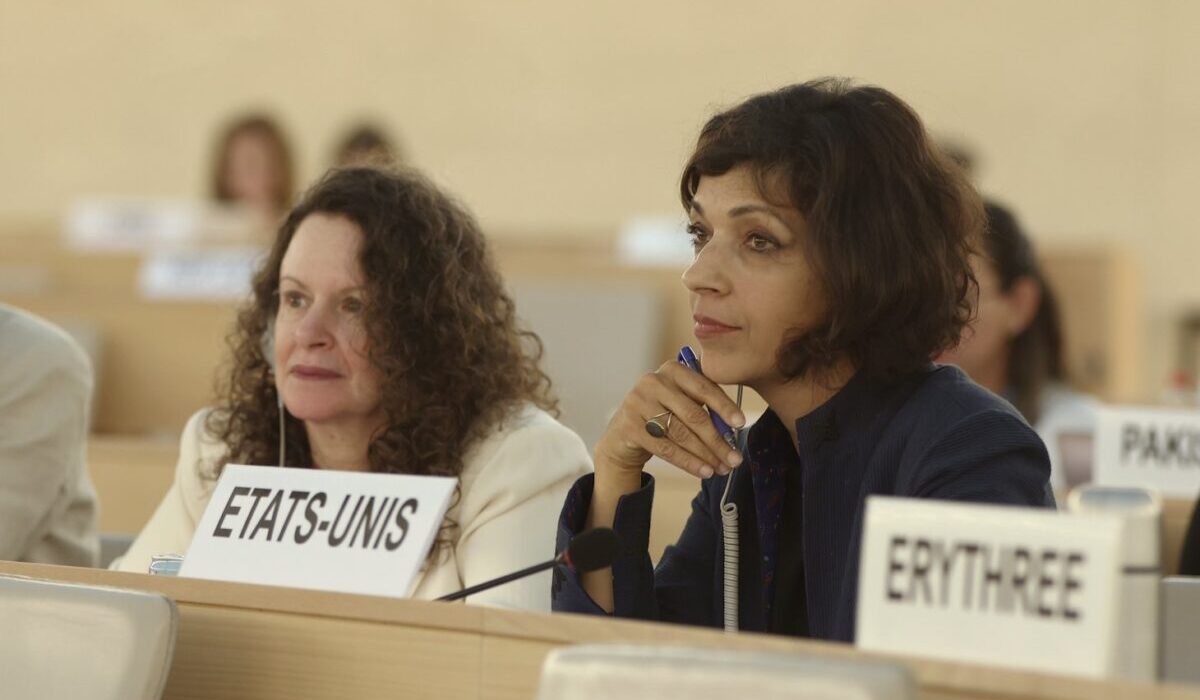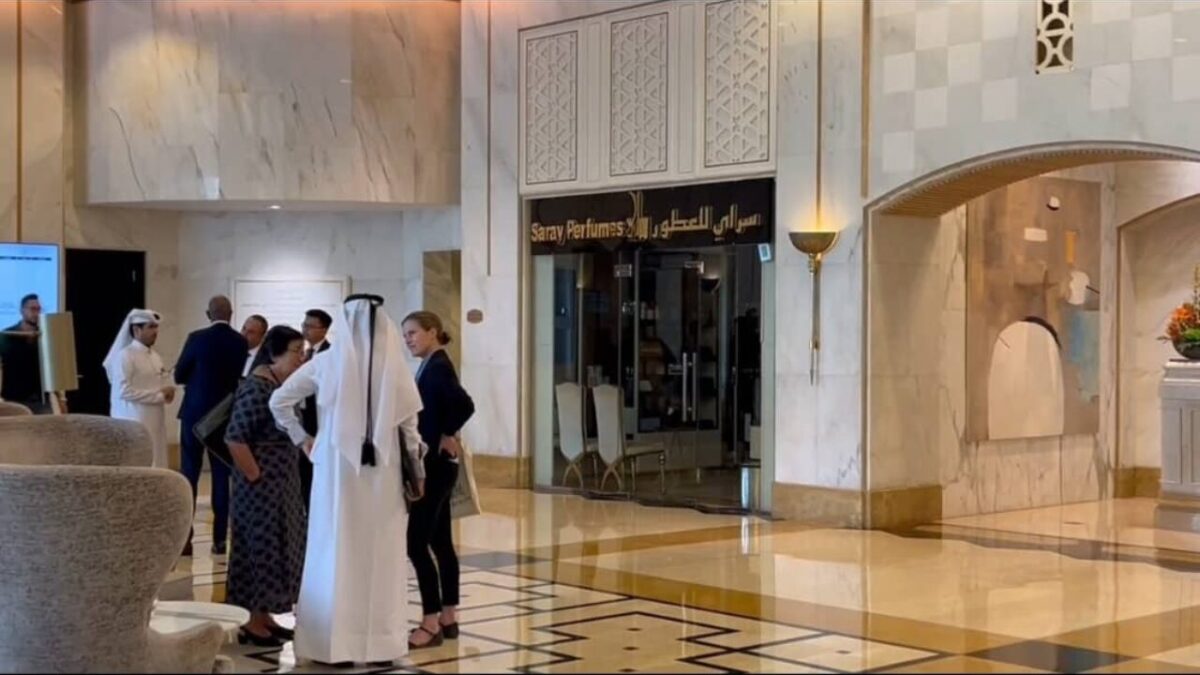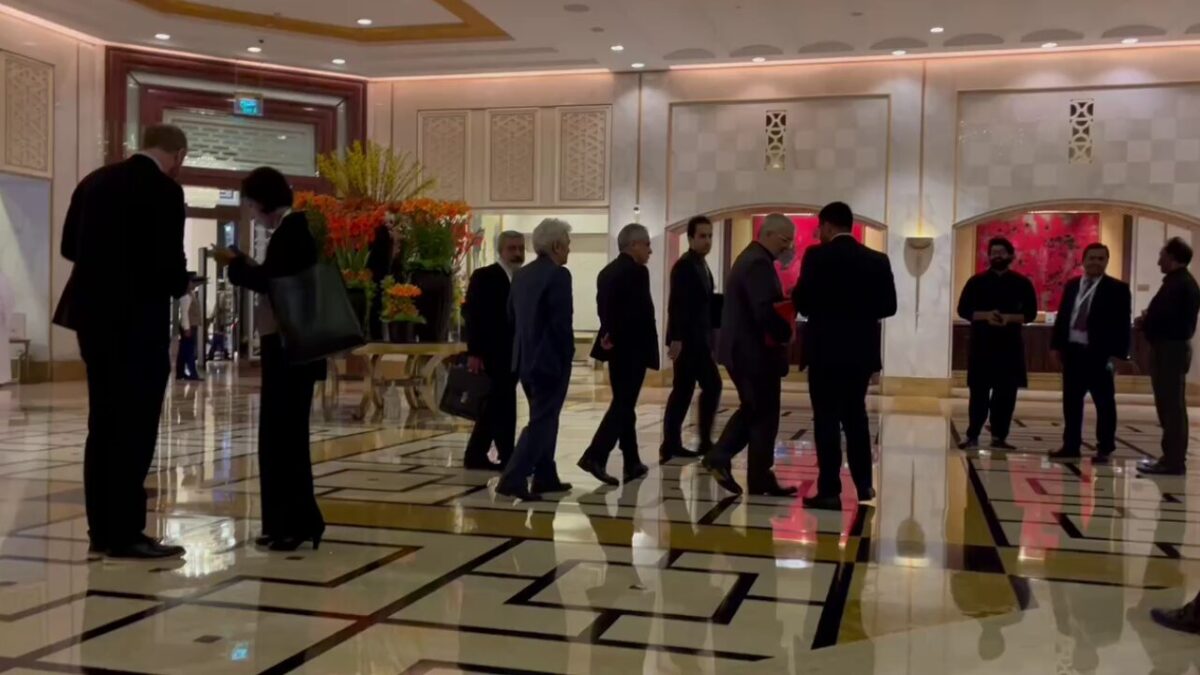Taliban delegation attends UN meeting in Qatar on Afghanistan, women excluded • FRANCE 24 English
Afghan women emphasize inclusion of “diverse voices” in decision-making: Amiri

DOHA, Qatar — Rina Amiri, the U.S. Special Envoy for Human Rights in Afghanistan, stated that she met with various Afghan human rights and women’s rights activists who underscored the necessity of including the “full diversity of Afghans,” particularly women, in future decision-making forums about Afghanistan.
Amiri noted that, over the past three weeks, she discussed concerns and recommendations with Afghan women and human rights networks both inside and outside Afghanistan.
She pledged to share the details of these discussions with envoys at the third round of the Doha meeting, which begins this evening.
Key points from her discussions include:
Human Rights Prioritization: The rights of women and girls must be prioritized.
Advocacy Spaces: Afghans, especially women, must be given opportunities to advocate for themselves.
International Pressure: The international community must continue to press the Taliban to reverse discriminatory edicts that restrict women and girls’ access to education, work, and movement, as well as other repressive policies.
Inclusive Framework: Ongoing consultations during and after Doha 3 are essential to support an inclusive framework for women and civil society participation.
Holistic Solutions: Afghanistan’s peace, security, and sustainability challenges cannot be resolved without the inclusion of diverse voices.
The exclusion of women and civil society members from the third Doha meeting has drawn strong criticism from human rights activists and women’s rights defenders
Statement on Canada’s attendance at UN meeting on Afghanistan
Statement
June 30, 2024 - Ottawa, Ontario - Global Affairs Canada
Global Affairs Canada today issued the following statement on the participation of David Sproule, Canada’s Special Representative for Afghanistan, in the third meeting of Special Envoys on Afghanistan (Doha III) hosted by the United Nations in Doha, Qatar, from June 30 to July 1, 2024:
“Canada is extremely disappointed that the UN organizers have excluded non-Taliban Afghan participants, including women's advocates, religious and ethnic minorities, and human rights groups from participating in the meeting’s main sessions.
“Canada has clearly expressed for weeks—both privately and in concert with other governments—its grave disappointment about the absence of civil society from Doha III.
“The full, equal and meaningful participation of Afghan women in the Doha meeting process is not only a core tenet of the Women, Peace and Security agenda, but fundamental to the achievement of a peaceful, stable and inclusive Afghanistan. None of the goals that Afghans are seeking to achieve are possible without the full participation of women.
“In the lead up to Doha III, Canada held consultations with Afghan civil society, human rights groups, and women to hear their concerns. Canada will use its platform at this meeting to amplify the messages of those who have courageously spoken out about the human rights abuses committed by the Taliban, but have not been invited to the main meetings.
“Since the fall of Kabul on August 15, 2021, and the subsequent closure of Canada’s embassy in Kabul, Canada has repeatedly urged the Taliban to honour Afghanistan’s international human rights obligations, lift restrictive measures on women and girls—including those measures touching on freedom of movement and rights of free speech and education—and restore women’s and girls’ meaningful participation in Afghan society.
“Canada will continue to call upon the UN to appoint, in a timely manner, a Special Envoy for Afghanistan with robust expertise on human rights and gender, who will spearhead the implementation of the roadmap as outlined in the UN Special Coordinator’s 2023 report and UN Security Council Resolution 2721.”
Activists to UN: Invitation of Taliban to Doha meeting ignores will of people

KABUL, Afghanistan — Dozens of activists and members of Afghanistan’s civil society have issued an open letter to the United Nations, asserting that the Taliban’s invitation to the Doha meeting disregards the will of the Afghan people.
“The Taliban is a terrorist group, it is criminal, and lacks any legal legitimacy. Over the past three decades, it has seized political power through military violence, spreading fear and terror,” the letter stated.
The activists argue that the Taliban does not represent the true fabric of Afghan society and lacks legitimacy within the country.
The letter calls on the international community to shift its focus from negotiating with the Taliban to engaging directly with the people of Afghanistan.
Signed by 20 civil institutions and organizations, as well as thousands of female protesters, independent human rights activists, academics, writers, artists, and Afghan citizens worldwide, the letter will be sent to all international human rights institutions, countries, and prominent global figures.
The activists and civil rights organizations also urge recognition of “gender apartheid” in Afghanistan, accusing the Taliban of systematically pursuing genocide by denying and suppressing other religions and sects.
The letter recommends international sanctions against the Taliban, maintaining its leaders on terrorist watchlists, and criticizes the travel of Taliban leaders to various countries, warning that it could facilitate the expansion of global terrorism.
The UN is hosting a meeting of special envoys on Afghanistan today, with the Taliban delegation in attendance—a development that has sparked strong reactions among Afghan civil rights activists.
Three woman activists refuse to attend Doha meeting

DOHA, Qatar — Three prominent representatives of women’s rights and civil society in Afghanistan have declined to participate in the third round of the Doha meeting, citing the exclusion of women’s rights from the main agenda.
Habiba Sarabi, a member of the former government’s negotiating team; Nabila Musleh, former deputy minister of women’s affairs; and Zubaida Akbar, a human rights activist, announced they would not attend the meeting. They argued that the presence of women at the event is not meaningful and that human rights issues, particularly women’s rights, are not prioritized.
Five individuals representing women and civil society were invited to the Doha meeting. However, they have not been included in the primary discussions scheduled for the first two days. Instead, their meeting with the UN Under-Secretary-General and some special representatives of various countries will occur on the third day of the event.
This sidelining of civil society representatives has provoked strong reactions from women’s advocates. Sarabi criticized the decision, stating, “The meeting with civil society representatives has been moved to a sideline session, which contradicts the principle of full and meaningful participation of women in this process.”
Akbar echoed this sentiment, expressing her frustration: “I will not be attending the meeting because Afghan women deserve to be at the main meeting table in Doha, shaping the agenda and prioritizing women’s rights.”
Some women’s rights activists argue that the engagement of international envoys with the Taliban amounts to appeasement, disregarding women’s rights. They have called for a boycott of the Doha meeting, asserting that those who do attend cannot represent all Afghan women.
“The meeting with the Taliban is boycotted and incomplete for protesting women because we have no demands from terrorists, and it is clear to us that the Taliban are not flexible,” said one protestor.
The list of women representatives at the Doha meeting has not been made public. According to the plan, the UN Under-Secretary-General and special envoys from various countries will meet with representatives of women and civil society on the sidelines of the event.
No comments:
Post a Comment